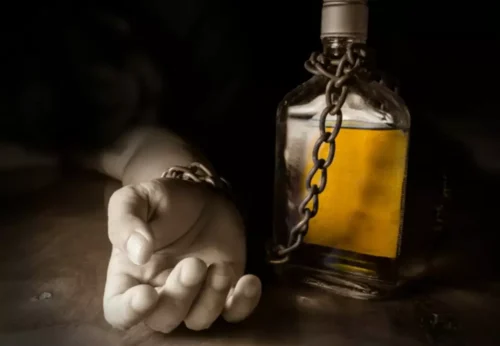
However, medical complications can occur during the acute phase of withdrawal. There is no exact timeline for alcohol withdrawal, and individual factors, such as the level of dependence on alcohol, will influence it. Alcohol withdrawal https://ecosoberhouse.com/ symptoms range from mild but annoying to severe and life-threatening. When that person cuts out alcohol, there is a period when their brain hasn’t yet received the message and still overproduces the stimulating chemicals.
- Certain antidepressants also show promise for helping reduce drinking when you live with depression.
- Allergy testing is the only way to formally diagnose allergies.
- If you plan to stop drinking, it’s best to seek assistance from your healthcare provider rather than quitting (especially “cold turkey”) on your own.
- By clicking “Submit,” you certify that you have provided your legal name and phone number, agree to the terms and conditions and privacy policy, and authorize Addictionresource to contact you.
Signs that you may be binge drinking include:
Alcohol abuse can affect brain structure development, so people who start binge drinking as teens or young adults may experience issues with learning and concentrating. Studies show that binge drinking can affect your working memory, which is your ability to store short-term information and keep track of what you’re doing. The spiral from binge drinking into alcohol addiction can be a gradual process. As you build a tolerance to alcohol, you may find that you need to drink more and more to feel the same effects. You may begin to binge drink more often, the days you abstain between sessions becoming fewer.
Who is at risk for alcohol withdrawal syndrome?
If you suddenly stop drinking or significantly reduce the amount of alcohol you drink, it can cause AWS. For example, they might decide to stick to one drink per occasion or no more than three drinks per week. When you’re drinking together, remind them of the limit they set for themselves. To help an underage drinker drop the habit, you’ll need to understand their motivations and be willing to converse with them in a nonjudgmental way. Because underage drinking can come with legal consequences, it’s also necessary to establish rules and consequences.

How Many Ounces Are In A Glass Of Wine?
With alcohol out of the equation, though, these chemicals cause withdrawal symptoms. Over time, however, the body builds a tolerance to alcohol, and a person may have to drink more and more to get the same feeling. Meanwhile, the brain is producing more and more neurotransmitters, making a person further imbalanced. But treatment varies based on the severity of alcohol withdrawal and the likelihood that it could progress to severe or complicated withdrawal. Go to the nearest emergency room or call 911 (or your local emergency service number) if you or a loved one has any concerning symptoms of alcohol withdrawal.
- The twelve-step program works as a gradual method of guiding principles and pragmatic steps that can be taken to go from the depths of addiction and unhealthy habits to sobriety.
- Most facilities offer both inpatient and outpatient treatment programs.
- The first step to quitting wine, for many, is to admit that they have a problem and entertain the idea that it may not be possible to quit without help.
- Wait until you’re both able to have a clear, unrushed, and uninterrupted conversation.
- Since wine is a socially accepted form of enjoyment in many cultures, it can be difficult to determine whether one has a problem.
- Addiction Resource does not offer medical diagnosis, treatment, or advice.
Or maybe you don’t even remember the things you say and do after a few glasses or bottles.
You can receive 24/7 text support right away and at your convenience. There is no obligation to enter treatment and you can opt out at any time. Wine has a reputation for producing particularly nasty hangovers. Your sex assigned at birth, body size, and tolerance also play a role in how drunk you get and the symptoms of intoxication you feel. Different people report getting different feelings from wine, but most describe wine drunk as a warm and cozy kind of drunk that makes you feel relaxed — but not drowsy — and still like yourself. Consuming even a small amount of alcohol can leave you feeling off, regardless of whether or not you develop a hangover.

What Increases the Risk for Alcohol Use Disorder?

If you or someone you know experiences these symptoms, seek emergency medical care. Thus, when you’re addicted to wine, you’re more likely to engage in dangerous behaviors. In addition, vitamin supplements may be given to replace essential vitamins that are depleted by alcohol use. Once withdrawal is complete, additional medications and supplements may be needed to address complications and nutritional deficiencies that occur because of chronic alcohol use. Benzodiazepines carry a Food and Drug Administration boxed warning because there is a risk of dependence. If you’re prescribed a medication from this class of drugs talk with your doctor about the risks before taking them and always follow the doctor’s instructions.
Ways to Manage Alcohol Cravings
If an individual has school or work obligations that prevent them from living at a treatment center, outpatient treatment is a good option. Outpatient treatment will still include the same type of therapy sessions, but is wine addictive less of the medical treatment typical of inpatient treatment. Many people suffering from a wine addiction (alcoholism) are unable to control the amount they drink, even if it causes severe problems in their life.

Red wine and mental health
- Maybe you experience your strongest cravings when you feel anxious or stressed or find yourself facing conflict with someone you care about.
- People who are daily or heavy drinkers may need medical support to quit.
- Your loved one might deny the problem, deflect, or get mad at you.
- If you’re a highly impulsive person, you may be more likely to reach for another drink without stopping to think about the consequences.
- RehabCenter.net is intended for educational purposes only and is not designed to provide medical advice of any kind.
Genetic, psychological, social and environmental factors can impact how drinking alcohol affects your body and behavior. Theories suggest that for certain people drinking has a different and stronger impact that can lead to alcohol use disorder. Not everyone who drinks alcohol will develop an addiction, but drinking too much even without addiction can become problematic. There are some positive health benefits of wine, which is made solely from grapes and the natural yeast found on them, but there are also risks. One of these is an addiction, and that can lead to many more issues. When consumed in moderation, wine may be beneficial to human health.
- You’re also at risk for AWS if you’ve previously had withdrawal symptoms or needed medical detox for a drinking problem.
- No one should assume the information provided on Addiction Resource as authoritative and should always defer to the advice and care provided by a medical doctor.
- Studies show that binge drinking can affect your working memory, which is your ability to store short-term information and keep track of what you’re doing.
